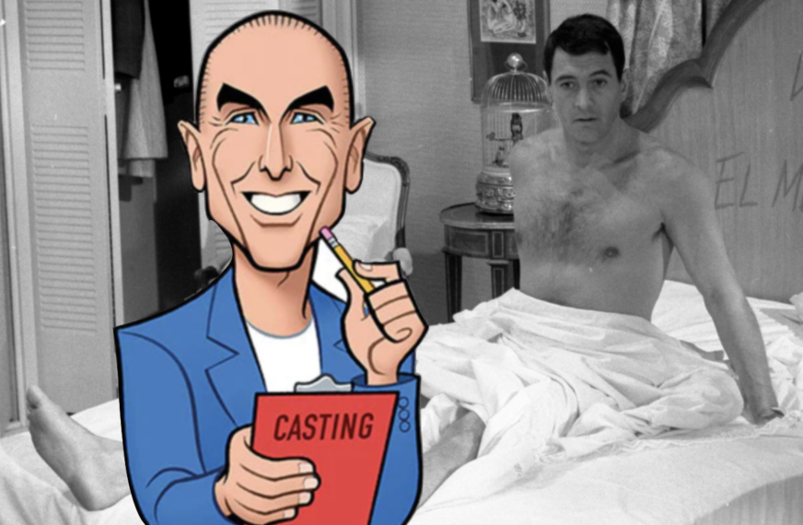
When the celebrated casting director Joel Thurm sat down to write his new memoir, Sex, Drugs, And Pilot Season, fifteen years ago, he was sitting on multiple decades of spicy secrets and entertainment experience of the highest-level. After all, he was the casting director behind Grease and The Rocky Horror Picture Show, and was NBC’s senior VP of talent and casting. It’s no surprise it took him this long to finish the book—you can only imagine the deep well of jaw-dropping stories he’s hiding in his back pocket.
What you might not imagine—but will definitely find when you crack open the book—is a firsthand account of Joel’s own steamy hookups with film and TV icons Rock Hudson and Robert Reed. We caught up with Joel to learn more about his long career working with countless film icons, his own shocking A-list hookup stories, and what else is in store for readers in Sex, Drugs, And Pilot Season: Confessions Of A Casting Director.
And don’t worry, we can skip right to the good part.
QUEERTY: Let’s talk about Rock Hudson. You tell quite the story in the book about him. Can you take us back to that night?
How about we take this to the next level?
Our newsletter is like a refreshing cocktail (or mocktail) of LGBTQ+ entertainment and pop culture, served up with a side of eye-candy.
THURM: There was a screening at a friend’s house…and there was a brand new not-quite-feature length porn movie called The Boys In The Sand. A B+ list of gay people, of which I was one, were at this party, standing up, watching a 16mm projection. Rock Hudson was there. Everyone knew he was gay… and nobody cared. He’d been around, I had seen him at other places, too.
Anyway, I realized he was looking at me… Me? Looking at me? With a signal to follow him, and I followed him upstairs into… I think one of the magazines said it was a bedroom, which sounds much better than a bathroom, but it was a bathroom. And the problem was… I was in awe! I couldn’t do anything, I was so nervous. Someone said, “Why didn’t you blow him?” I said I couldn’t even do that, I was so nervous. I was embarrassed about being nervous, so I left the room, and went downstairs and tried to hide from him for the rest of the party. That’s the story.
The party was large enough that I didn’t have to see him and he didn’t have to see me for the rest of it.
Did you ever see him again?
I saw him years later in my office, when NBC was doing a new series called The Devlin Connection. I was head of talent at NBC and final auditions were in my office. He never made the connection, and I certainly wasn’t about to remind him.
Related:
That time a closeted heartthrob Rock Hudson played a straight guy playing gay
Today would have been the 97th birthday of gay silver screen legend, Rock Hudson.
You wrote another story about Robert Reed…
I was working at Spelling-Goldberg [Productions], casting Starsky & Hutch, Charlie’s Angels, and a bunch of other things. Cindy Dunne, who was in charge of developing scripts, came into my office on a Friday afternoon looking very depressed, and said, “ABC just passed on my favorite script.” The only way we could do it is if we get a very big star. She said, “Could you do me a favor and read this?” I said, “Cindy, that’s my job, it’s not a favor. Of course I’ll read it.”
I read [The Boy In The Plastic Bubble] and thought, it’s an interesting story… By coincidence, my best friend at that time was a theatrical manager, and he had a slew of wonderful clients, including John Travolta, Jeff Conaway, Holland Taylor, Katherine Helmond, Patrick Swayze. So we had a ritual, Bob [LeMond] would come to my house every Saturday with a pile of scripts he had to read for his clients, and I would be reading the scripts that I needed to read that week. He was complaining that he had to find something for his most important client, John Travolta, who only had less than a month to do something after Welcome Back, Kotter was over that season.
Anyway, Bob said he had to pull a rabbit out of a hat. I read the [The Boy In The Plastic Bubble] script, I threw it over, and said, “here’s your rabbit.” And, by Monday, a deal was made with Travolta… and I had attached Randal Kleiser as a director.
Related:
I’ve been sexting a closeted A-List celebrity. How do I handle this?!
“I’m still in shock about who it is. And not only that, I’m actually developing feelings for him.”
ABC wanted more stars in the movie… that’s how Robert Reed got cast, we needed a name. And we paid him a lot. But [Reed] was a bit of a prick. He was not used to being not the center of attention, or at least the co-center of attention. I read later on he wasn’t exactly a dream to work with on The Brady Bunch, either. But I didn’t know that. But I knew he was gay.
One day, he had a right to be a little pissed off because his hair had to be uncurled for one thing, then re-curled for another scene. This would never happen on a normal schedule, but we had to get rid of Travolta in 17 days. So I went into his dressing room to make nice.
As I describe in the book …I started giving him a back rub, which he seemed to like, then I started rubbing a little lower, and…you figure it out! And then, afterwards of course, he never looked me in the eye again on set and went back to being a prick.
It was only when I started writing the book that I thought…oh god, do I put this in the book? He’s dead…I can put it in the book. Finally, he came out, toward the end of his career.
You said you knew he was gay, though. How?
Because other gay people talk… that’s how. I had no firsthand knowledge… until then. It was rumored, it was talked about, and I gathered that it was the same situation on The Brady Bunch.
One of my favorite stories in the book is about Susan Sarandon and Rocky Horror—really satisfying to read that chapter. Can you tell us more about that?
I had a relationship with this guy, and we broke up a few times because… at that time, I had very big difficulty with monogamy. He said when we were getting back together for the third time, “We can’t do this, because whatever agreement we make, you’ll find a way to get around it.”
So, if you remember the Rocky Horror story, that’s exactly what I did: “Get around” Susan’s agents.
I had a dinner party at my house. I knew Susan and Chris Sarandon slightly from New York. They had just come out to further their movie careers, which they both did. But it was a one-bedroom apartment, spaghetti and meatballs on laps. Chris [Sarandon] went into the bedroom to watch Killer Bees, a TV movie with Gloria Swanson… along with Randal Kleiser.
So, left in the living room were Barry Bostwick, myself, Bob LeMond, Barry’s manager, and [Susan]. Bob calls me the next day and said, “So did you see what happened?” I said, “What do you mean?” He said, “Well, there was incredible sexual goings-on visually between Susan and Barry Bostwick.” And we may have talked about Rocky Horror [that night] because I had cast the play, which had been running in LA for several months. Barry knew about it because he turned down the role of Brad in the play, but said “If there’s ever a movie, I’m there.”
Related:
Rocky Horror actor Tim Curry is trending for the best of reasons
How many of his roles can you remember?
I called Susan’s agents… and said I’d like to set up an audition for Susan Sarandon for Rocky Horror… the idiot on the other end of the line said, “No no no, this is not the kind of project we want for her, and she certainly won’t audition.” I’m giving it to you with the vocal intonations that the guy gave me. I said fine.
I called Bob LeMond and told him what the story was, and I told him to tell Barry to bring Susan to his audition, and leave everything else to me. I knew Susan wanted to do it, she just didn’t want to go against her brand new powerful agents. So, Barry starts to read…and I started reading with Barry…about two sentences into it, I said “This is ridiculous–why am I reading with you? A 30-year-old, bearded, balding guy? Susan, can you do me a favor? Can you read with Barry?” Great workaround, and she did not disobey her agents. Then the director said, “Who is she?,” and that was it! Then they go to London to do the movie, and Susan and Barry break up after two weeks.
A normal casting director would never have thought of that and done that.
You write a lot about Randal Kleiser. Can you talk more about that relationship and what it was like to have a gay collaborator?
Well, “gay” barely entered into it. The only way it did… I met Randal at his house when he was living in Santa Monica, in his last year at USC, and he was getting ready to do his master’s thesis. So I’m at this party, and something happened to me that rarely happens: the handsomest guy in the room comes over to talk to you. Never happened before. Randal was a gorgeous California beach boy with naturally bleached hair… and I thought, oh, how nice. And he said, “So I hear you’re a casting director.”
He said he was about to do his master’s thesis, could I help with the casting, and I said, “Well, let me read it.” It was a wonderful piece… NBC licensed it for ten years to play at Christmas and that started our relationship. We’re sort of entwined… as hard as he tried to run away from it, we’re entwined.
What do you mean by that?
I was never “in.” So it wasn’t a question of coming out. I was lucky enough to work in New York theatre, where… who cares? Hollywood was, and still is in many ways, very homophobic. When you think of the majority of people on sets, they’re not the actors or directors or writers, they’re the crew, the blue-collar crew. And Randal was very halfway-in [the closet], halfway out… he never admitted it. Did I answer your question? I think I got off topic.
What do you think has changed the most about how gay actors and directors are seen?
When it comes to feature films, nothing. Name me one out feature film handsome leading man. I’m waiting.

Sex, Drugs, And Pilot Season is available now.

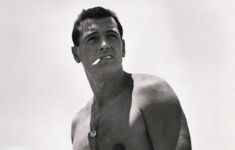

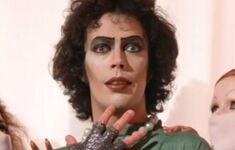

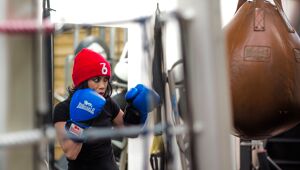










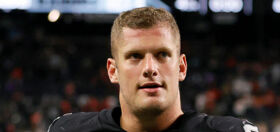
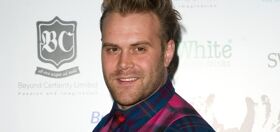





Matthew Rettenmund
Small correction; Robert Reed never came out publicly.
ScottOnEarth
Thanks for clarifying….I didn’t think he ever came out, which was probably one of the reasons he seemed so unhappy.
nitejonboy
really? I always thought he had later in life before he died. At about 19 in the late 90’s I had a gay porn mag ( can’t remember which one ) where there was an interview with him where he talked about his sex life and having to be closeted, Hollywood, etc. I know it was a gay mag, but it still would have made that interview a public one, wouldn’t it ?
Claytonisahobo
I read this thinking I was goin g to get some dish on Travolta.
ScottOnEarth
I love your name!
abfab
I know! Me too. Blanche’s brother is NOT a HOBO, Sophia!
nitejonboy
LOL, your name!!! I worked on the tv show of Sordid Lives and my only regret in life is that I never got to meet Rue on set.
Fahd
Rock Hudson? Robert Reed? Not exactly “revelations” and people can more easily make up stories about dead people. Unless there’s a charity angle involved, I think $42 is too much to ask for this memoir. I would have asked him as a last question, “Why is your book so expensive?”
bachy
Awesome interview.
Rambeaux
Am trying hard to remember when Robert Reed was ever an “A list” celebrity, on par with Rock Hudson.
humble charlie
“i thought the same thing” – verlenn
inbama
Maybe she meant Robert Redford? Probably didn’t have sex with him either.
Chrisk
He was an A list celebrity to me but then I was just a kid.
James
READS LIKE A REALLY BORING BOOK.
More name dropping than anything, with practically no substance. “I was too nervous to sleep with Rock Hudson” IS NOT INTERESTING and GOES NOWHERE.
Inspector 57
Re: Joel Thurm, this interview, and Thurm’s book.
Ick.
Plato
1) The caricature on the front is rather flattering.
2) Either spill it or shut it.
3) Rock and Tab were A-listers anyway.
4) Joel Thurm was born in 1942. Gay people usually know how to take better
care of themselves.
5) At least “Full Service” included some smut.